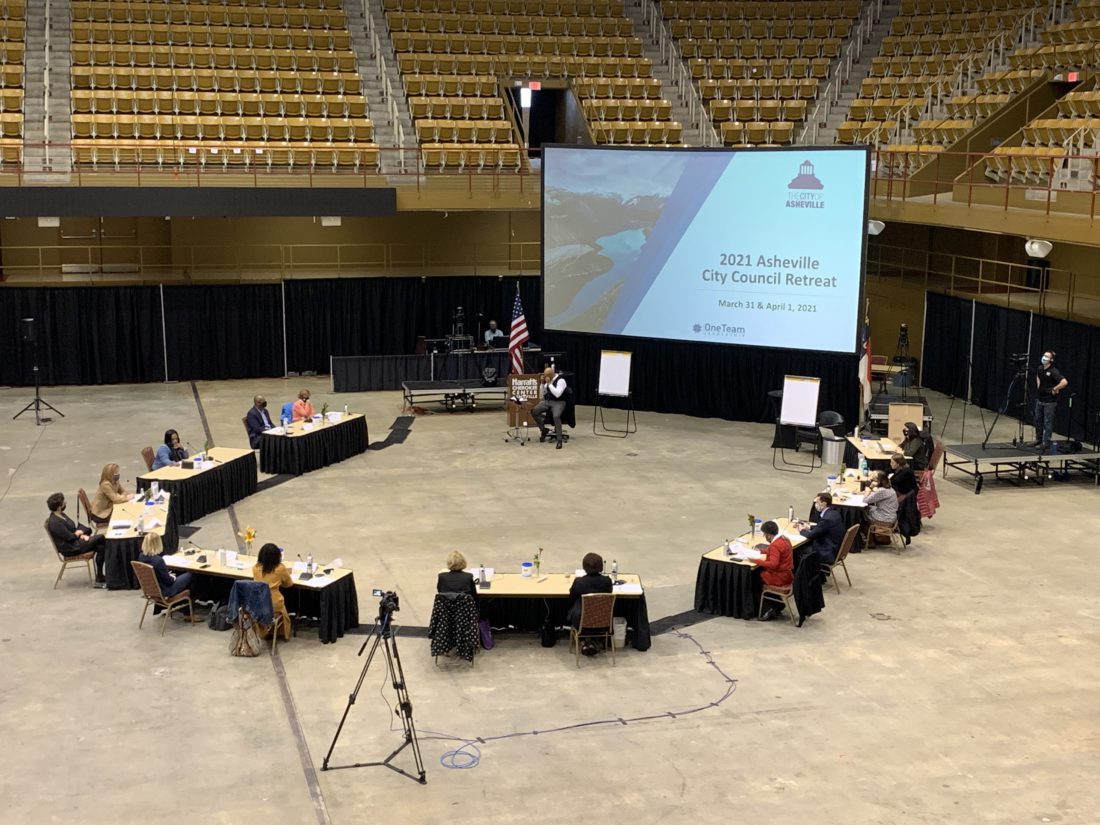The city of Asheville must pay nearly $4,200 in legal fees to a coalition of local media organizations, including Mountain Xpress, following a ruling by Buncombe County Superior Court Judge Steven Warren. Those costs were incurred earlier this year as the paper, along with the Citizen Times, Blue Ridge Public Radio, Carolina Public Press and Asheville Watchdog, sued the city over its plan to hold a March 31 Council retreat behind closed doors.
Warren had concluded on March 30 that the retreat was an official meeting of the government body and thus had to be open to the public. As the “prevailing parties” in the action, he ruled June 21, Xpress and its coalition partners are entitled to recover the entirety of their attorney fees. (In North Carolina, attorney fee awards are not automatic and depend on judicial discretion.)
“The decision to initiate litigation was not an easy one due to the formidable fiscal environment for media organizations. Nevertheless, the importance of the issue left them no choice,” Warren stated in his findings of fact.
The judge also noted that, while Xpress and other outlets had attempted to reach an agreement with the city without litigation, Asheville’s lawyers had held firm to their interpretation of the law — even after Frayda Bluestein, a professor with the UNC School of Government and open meetings expert, told them it was likely incorrect.
“This is a retreat of the board, specifically aimed at the behavior and relationships and among [City Council members] as they do the work of the city,” Bluestein told Xpress in March. “This is a planned activity with a goal of improving their efficacy as a board. That seems like public business to me.”
The media coalition’s lawyer, Amanda Martin, said Warren’s decision on the fees sends a message to other North Carolina jurisdictions that might attempt to conduct public business in secret. “We are grateful that Judge Warren apparently agreed that it was important not only for the city of Asheville to comply with the open meetings law but to be accountable when they tried to sidestep it,” she said. “A different ruling could have encouraged public bodies and public agencies to flout the law with little consequence.”
Brad Branham, Asheville’s city attorney, confirmed that he would respect the June 21 ruling despite disagreeing with it. However, he suggested that the decision would not necessarily impact Asheville’s future approach to matters of transparency.
“Any decisions regarding application of the state’s open meetings laws are applied on a case-by-case basis in order to most effectively adhere to those guiding principles. Therefore, it is difficult to say that this particular ruling would have any bearing on Council meetings moving forward,” Branham told Xpress.
Branham did not provide a specific estimate for how much the city spent on its legal defense. Instead, he said that the case was handled entirely by Asheville’s own lawyers and that “relatively minimal staff resources and time were utilized.”




Thumbs up, Xpress!
And the clown car rolls on… Lol